Are you ready to uncover the essential truths behind common dog health myths? From vaccinations and nutrition to grooming practices, our expert guide is here to debunk misconceptions and provide you with valuable insights to ensure your furry friend’s well-being.
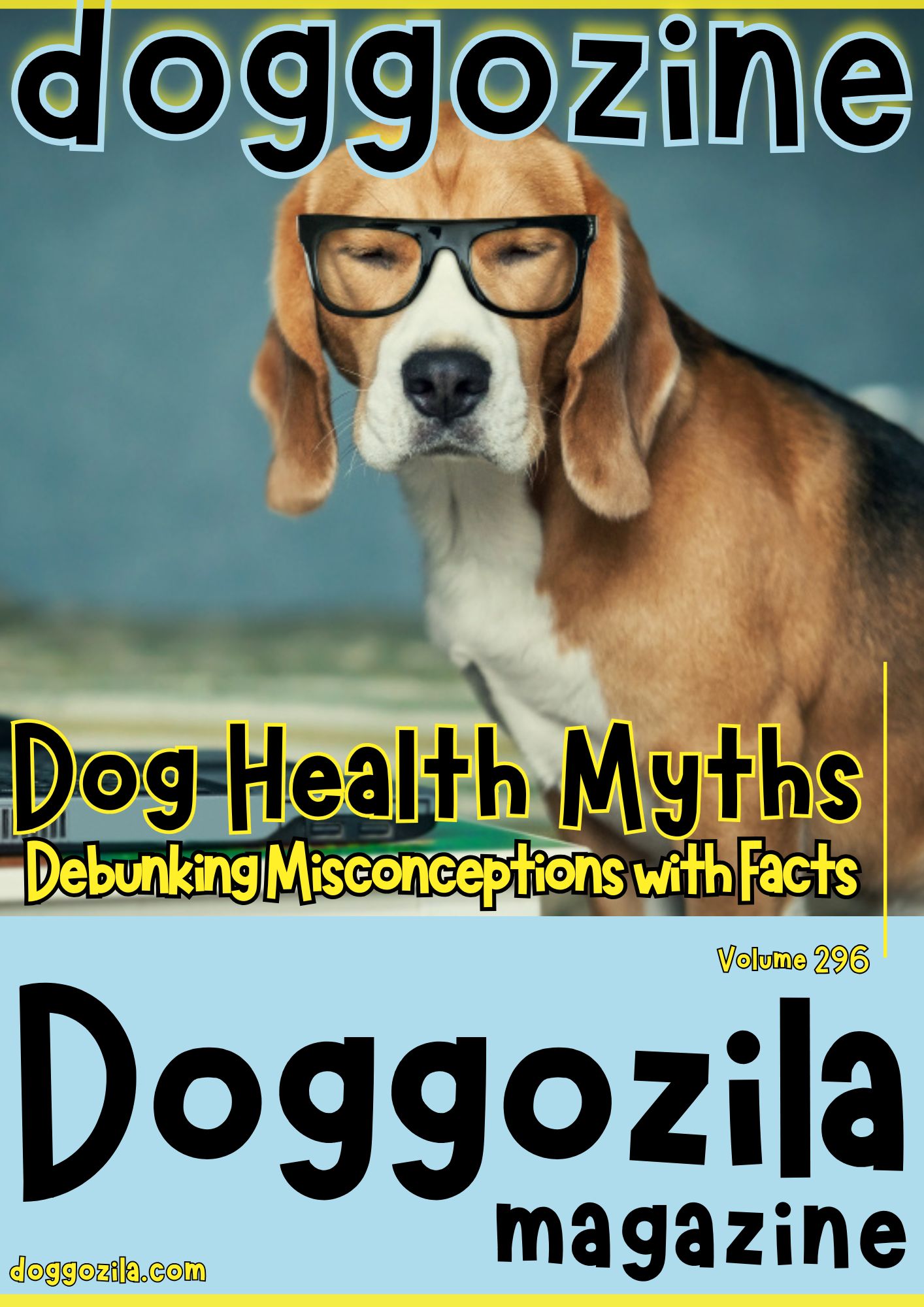
NAVIGATE THROUGH THE TRUTH ABOUT VACCINATIONS, NUTRITION, AND GROOMING
Discover the reality behind crucial topics like the necessity of vaccines, the significance of a balanced diet, and the best grooming practices for your canine companion. Say goodbye to misinformation and equip yourself with accurate information to make informed decisions for your dog’s health.
Let’s address The key dog health issues and dispel popular myths
Whether you’re a seasoned pet parent or new to the world of dog care, our informative article will address key dog health issues, dispel popular myths, and offer practical advice to enhance your four-legged best friend’s quality of life. Get ready to navigate the intricate world of pet care with confidence and clarity. Let’s delve into the facts and debunk the dog health myths together!
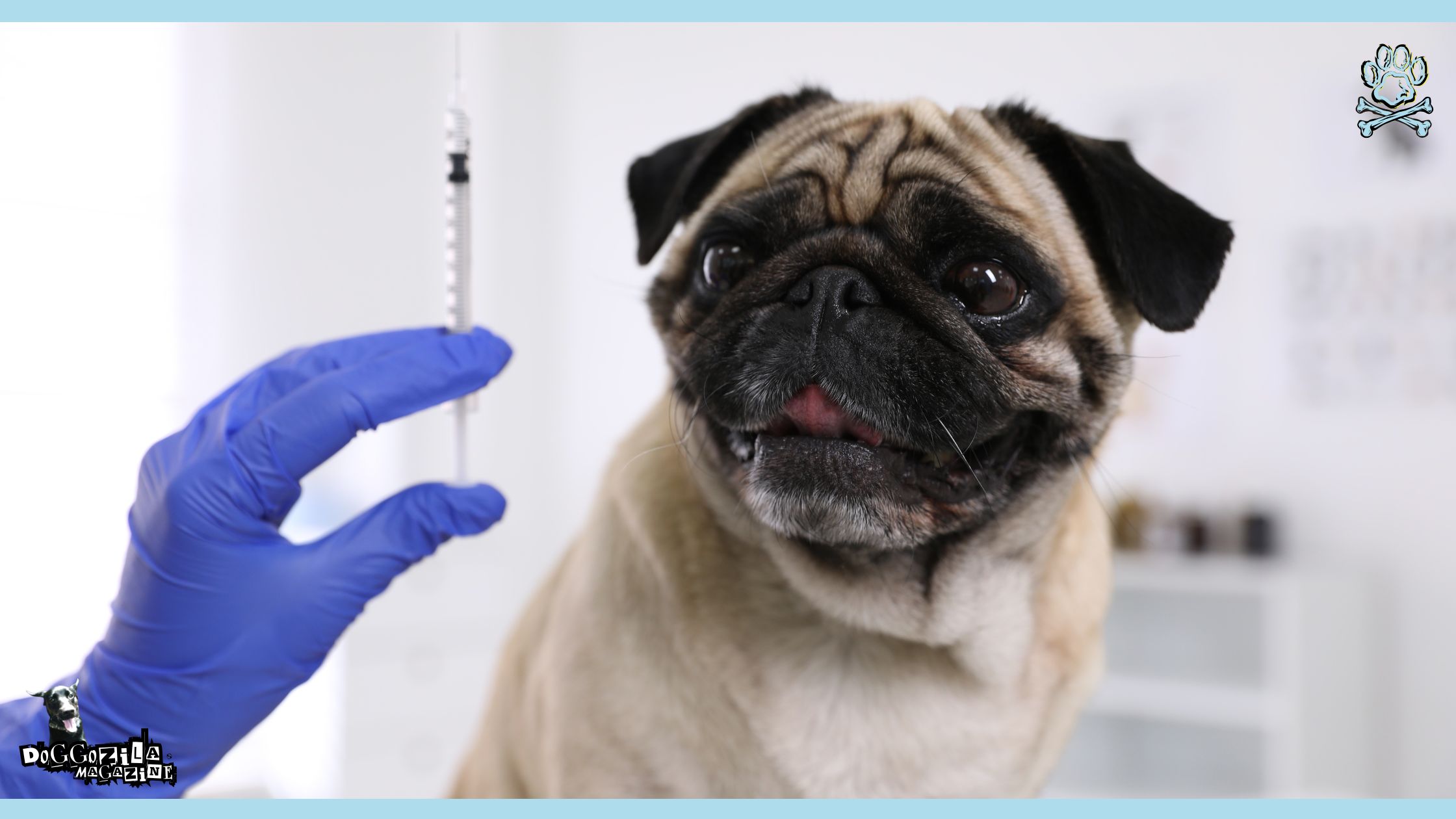
VACCINATION MYTHS VERSUS FACTS ABOUT DOG HEALTH
Vaccinations are a crucial component of your dog’s health, yet many pet parents fall prey to misconceptions surrounding them. They are essential for all dogs, regardless of lifestyle, and should be tailored to individual needs to ensure optimal dog health and protection against diseases.
The Biggest Two Dog Health Myths and Misconceptions about Vaccinations
One of the common dog health myths is that indoor puppies don’t require vaccinations since they’re not exposed to other animals. However, even indoor pups can encounter diseases through contact with contaminated surfaces or infected pets.
Another misconception is that vaccinations cause more harm than good. While rare side effects may occur, the benefits of protecting your furry friend from potentially deadly diseases far outweigh the risks. It’s essential to work with your veterinarian to create a vaccination schedule tailored to your dog’s specific health condition and lifestyle.
Debunking the Myths about The Dog Health Approach “One Size Fits All”
- Vaccination needs vary based on age, breed, and environment
- Puppies require a series of shots for optimal protection
- Senior dogs may need additional or fewer vaccinations
Remember, vaccinations are not a one-time event but a lifelong commitment to your dog’s well-being. By staying informed and working closely with your vet, you can ensure your furry companion remains protected against preventable diseases.
Tailored Vaccination Schedules it’s Not One of the Dog Health Myths
When it comes to vaccinating your dog, a one-size-fits-all approach simply doesn’t work. Each dog’s vaccination needs vary based on factors such as age, breed, health condition, and lifestyle. Puppies, for example, require a series of vaccinations to build immunity, while senior dogs may need fewer or different vaccinations than their younger counterparts.
Working closely with your dog’s veterinarian to create a personalized vaccination plan is crucial for ensuring your pet receives the protection they need without over-vaccinating. Your vet can assess your dog’s individual risk factors and recommend a schedule that takes into account their unique needs and circumstances.
🔑 Key Points: Tailored vaccination schedules based on your dog’s specific needs and risk factors are essential for providing optimal protection against preventable diseases.

THE TRUTH ABOUT DOG NUTRITION: DEBUNKING THE FOOD HEALTH MYTHS
When it comes to your dog’s nutritional needs, it’s easy to get caught up in the latest trends and fads. From raw diets to grain-free options, pet parents are bombarded with conflicting information about what’s best for their furry friends. One of the popular dog health myths is that a raw diet is the most natural and healthiest option for your furry friends. While some dogs may thrive on a raw diet, it’s not suitable for every pet.
Be careful with the myths that raw food can’t pose health risks for your dog if not prepared properly. Raw foods may not provide all the necessary nutrients for your dog’s specific needs.
Grain-Free Diets: Necessary or Not?
Other one of the dog health myths is that grain-free diets are always better for dogs. However, grains can be a valuable source of nutrients and energy for many dogs. Unless your pet has a diagnosed grain allergy, there’s no need to avoid grains altogether.
It’s also crucial to be cautious when feeding your dog human food. Many seemingly harmless foods can be toxic to dogs or cause digestive issues. Stick to treats specifically formulated for dogs and always consult with your vet before introducing new foods into your pet’s diet.
Creating a Balanced Diet for Your Dog
- Consider your dog’s age, breed, and activity level
- Look for high-quality, nutritionally complete dog food
- Avoid overfeeding and monitor your dog’s weight
- Consult with your vet to address any specific dietary needs
By separating fact from fiction and working closely with your veterinarian, you can ensure your dog receives the balanced nutrition they need to thrive.
🔑 Key Points: Every dog’s nutritional needs are unique, and it’s essential to work with your veterinarian to create a balanced diet that meets your pet’s specific requirements while being mindful of potential risks associated with trends like raw or grain-free diets.

THE REAL DEAL ON DOGS EATING HUMAN FOODS
While it’s tempting to share your favorite snacks with your furry friend, many human foods can be detrimental to your pet’s health. Some seemingly harmless foods, like grapes, chocolate, and onions, can be toxic to dogs and cause serious digestive issues or even life-threatening conditions. It’s best to stick to dog-specific treats and food that are formulated to meet their nutritional needs and avoid potential health risks. If you want to offer your dog a special treat, opt for pet-safe options like plain, cooked chicken or carrots.
Always consult with your veterinarian before introducing any new foods into your dog’s diet, and be mindful of portion sizes to prevent obesity and other health concerns.
🔑 Key Points: Feeding your dog human food can lead to serious health issues, so it’s best to stick to pet-specific treats and consult with your vet before making any changes to their diet.
Addressing Common Nutrition Misconceptions
When it comes to your canine companion’s nutritional needs, there’s no shortage of misconceptions and dog health myths circulating among pet owners. One prevalent belief is that dogs require a grain-free diet to thrive, but this isn’t necessarily true. While some dogs may have grain allergies or sensitivities, grains can be a valuable source of nutrients and energy for many dogs.
One of the funny myths about dog health is that our furry friends can thrive on a vegetarian diet. However, dogs are omnivores and require a balanced diet that includes both plant and animal-based proteins to meet their nutritional requirements. Attempting to feed your dog a vegetarian diet without proper guidance from a veterinary nutritionist can lead to nutrient deficiencies and health issues.
The Protein Debate: How Much is Too Much?
Many pet owners also believe that the more protein in their dog’s diet, the better. While protein is an essential part of a balanced dog diet, excessive amounts can put a strain on your dog’s kidneys and lead to other health problems. It’s crucial to choose a high-quality, complete dog food that provides the appropriate balance of protein, fats, and carbohydrates for your pet’s life stage and activity level.
Navigating Food Allergies and Sensitivities
- Work with your vet to identify potential allergens
- Consider an elimination diet to pinpoint sensitivities
- Select hypoallergenic or limited-ingredient diets as needed
- Be patient and consistent when introducing new foods
By separating fact from fiction and working closely with your veterinarian, you can ensure your furry friend receives the balanced, species-appropriate nutrition they need to thrive.
🔑 Key Points: Providing your dog with a balanced, veterinarian-recommended diet tailored to their individual needs is essential for optimal health, while being mindful of common misconceptions surrounding grain-free, vegetarian, and high-protein diets.
Debunking the Grain-Free Diet Trend
The grain-free diet trend has taken the pet world by storm, but is it really the best choice for your dog? While some pet owners believe that grains are harmful or unnecessary in their dog’s diet, the truth is that grains can be a valuable source of nutrients and energy for many dogs.
In fact, the majority of dogs can digest and utilize grains without any issues, and grain-free diets may not provide any additional health benefits. In some cases, grain-free diets have even been linked to the development of heart disease in certain breeds.
Unless your dog has a diagnosed grain allergy or sensitivity, there’s no need to avoid grains altogether. Instead, focus on choosing a high-quality, balanced dog food that meets your pet’s dietary needs and consult with your veterinarian to address any concerns about your dog’s nutrition.
🔑 Key Points: Grain-free diets are not necessary for most dogs and may not provide any additional health benefits, so it’s essential to work with your veterinarian to determine the best diet for your individual pet.
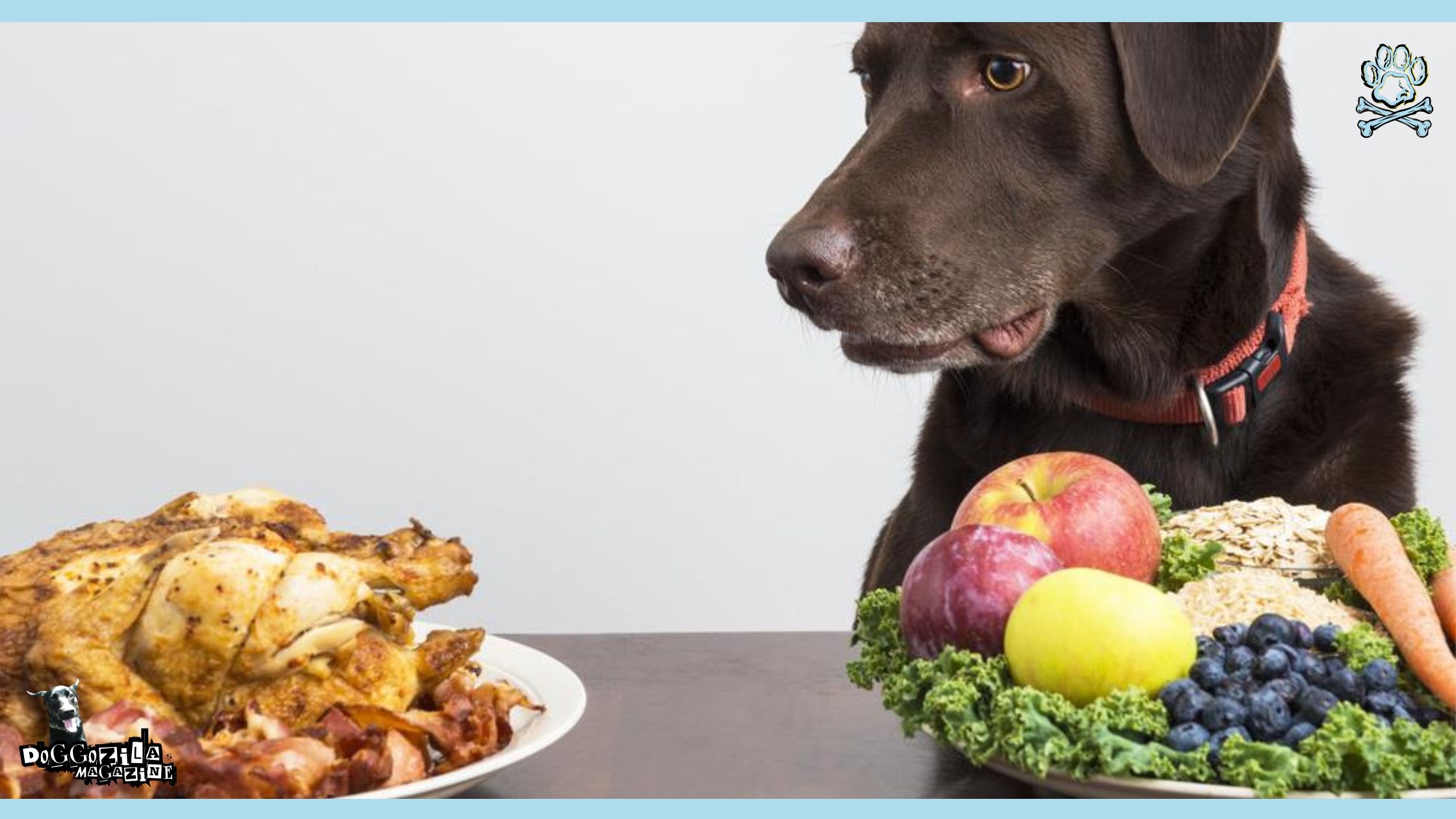
CAN DOGS BE VEGETARIANS? EXAMINING DIET DOG HEALTH MYTHS
Some pet owners may wonder if their dogs can thrive on a vegetarian diet, but it’s important to remember that dogs are omnivores and require a balanced diet that includes both plant and animal-based proteins. While it’s possible to formulate a vegetarian diet for dogs, it’s challenging to ensure that it provides all the necessary nutrients for optimal health. Attempting to feed your dog a vegetarian diet without proper guidance from a veterinary nutritionist can lead to nutrient deficiencies, health issues, and even life-threatening conditions.
„ It’s crucial to prioritize your dog’s biological needs,
over personal beliefs or preferences when it comes to their diet. “
🔑 Key Points: Dogs require a balanced diet that includes animal-based proteins, and attempting to feed them a vegetarian diet without proper veterinary guidance can lead to serious health consequences.
Raw Diet: Is It Really Better?
The raw diet trend has gained popularity among some pet owners who believe that it’s a more natural and healthier option for their dogs. However, it’s crucial to understand the potential risks and drawbacks of feeding your dog a raw diet before making the switch.
One major concern with raw diets is the risk of bacterial contamination, such as Salmonella or E. coli, which can pose serious health risks to both dogs and their human family members. Undercooked food poses health risks not only to your pet but also to you and your family through cross-contamination in the kitchen.
Additionally, formulating a balanced raw diet that meets all of your dog’s nutritional needs can be challenging without the guidance of a veterinary nutritionist. Homemade raw diets often lack essential nutrients, leading to deficiencies and health problems over time.
Alternatives to Raw Diets
- Choose high-quality, commercial dog foods that meet AAFCO standards
- Consider fresh, cooked diets prepared by a veterinary nutritionist
- Supplement with fresh, whole foods under veterinary guidance
If you’re considering a raw diet for your dog, it’s essential to consult with your veterinarian to weigh the potential benefits and risks and to ensure that your pet receives a balanced, safe diet that meets their individual needs.
🔑 Key Points: Raw diets can pose significant health risks to dogs and their human families, and formulating a balanced raw diet is challenging without professional guidance, so it’s essential to consult with your veterinarian and consider safer alternatives.
Essential vs. Excessive: Understanding Protein Needs
Protein is an essential part of a balanced diet for dogs, but it’s important to understand that more isn’t always better. While dogs require protein for muscle development, tissue repair, and other vital functions, excessive protein intake can put a strain on their kidneys and lead to other health issues.
The amount of protein your dog needs depends on factors such as their age, breed, activity level, and health status. Growing puppies and active adult dogs generally require more protein than senior or less active dogs.
When selecting a dog food, look for high-quality, digestible protein sources such as meat, poultry, or fish, and avoid products with excessive amounts of plant-based proteins or fillers. Consult with your veterinarian to determine the appropriate protein level for your dog’s individual needs and to ensure that they’re receiving a balanced diet.
🔑 Key Points: While protein is essential for dogs, excessive intake can be harmful, so it’s important to choose a high-quality dog food with an appropriate protein level based on your pet’s individual needs and to consult with your veterinarian for guidance.

GROOMING ESSENTIALS: BUSTING MORE DOG HEALTH MYTHS
Grooming is an essential aspect of your dog’s overall health and well-being, but many dog health myths persist about best practices. One common misconception is that indoor dogs don’t require regular grooming since they’re not exposed to the elements. However, all dogs need regular brushing, bathing, and nail trimming to maintain healthy skin, coat, and paws.
To Shave or Not to Shave Your Dogs?
Another one of the interesting dog health myths is that shaving a dog’s coat in the summer helps keep them cool. In reality, a dog’s coat acts as insulation, protecting them from both heat and cold. Shaving can disrupt this natural temperature regulation and expose their skin to sunburn and other irritations.
Regular grooming not only keeps your dog looking and feeling their best but also allows you to monitor their skin and coat for any changes or issues that may require veterinary attention. It’s also an excellent opportunity to bond with your furry friend and reinforce positive dog behavior. Remember that it’s very important to keep your dog fresh.
🔑 Key Points: Consistent grooming is crucial for all dogs, regardless of lifestyle or breed, to maintain their physical health and emotional well-being while strengthening the owner-dog bond.
Dental Care: Necessary Or Overhyped?
Don’t let bad dog breath fool you – dental care is a crucial component of your dog’s overall health. Neglecting your pet’s oral hygiene can lead to tooth decay, gum disease, and even systemic health issues.
Regular brushing, dental chews, and professional cleanings can help prevent the buildup of plaque and tartar, which can cause painful infections and tooth loss. Incorporating dental care into your dog’s routine is not only a best practice for their health but also a way to enhance their quality of life.
If you’re unsure about how to get started with your dog’s dental care, consult with your veterinarian for guidance and recommendations tailored to your pet’s specific needs.
🔑 Key Points: Prioritizing your dog’s dental health through regular at-home care and professional check-ups is essential for preventing oral diseases and promoting overall well-being.
Parasite Prevention in Indoor Dogs
Just because your dog spends most of their time indoors doesn’t mean they’re immune to parasites. Fleas, ticks, and intestinal worms can still find their way into your home and pose a health issue for your pet.
Regular preventative treatments, such as monthly flea and tick medication and routine deworming, are crucial for protecting your indoor dog’s health. Consult with your veterinarian to determine the best parasite prevention plan for your furry friend based on their lifestyle and risk factors.
🔑 Key Points: Indoor dogs still require regular parasite prevention to safeguard their health from potential infestations and internal parasites.
Dog Grooming Misconceptions: To Shave or Not to Shave?
Another one of the common grooming and dog health myths is that shaving a dog’s coat in the summer helps keep them cool. However, a dog’s coat serves as natural insulation, protecting them from both heat and cold. Shaving can disrupt this temperature regulation and expose their skin to sunburn and other irritations.
Instead of shaving, focus on regular brushing to remove loose fur and prevent matting, which can trap heat and cause discomfort. Trimming long hair around the ears, paws, and sanitary areas can also help keep your dog comfortable and clean.
It’s important to note that some breeds, such as Poodles or Bichon Frises, require regular haircuts to maintain their coat health and appearance. However, this should be done by a professional groomer who understands the specific needs of each breed.
Dog Health Myths About Bathing: How Often Should Dogs Be Bathed?
One of the popular health myths about dog grooming is that they only need to be bathed when they’re visibly dirty or smelly. However, regular bathing is essential for maintaining your dog’s skin and coat health, as well as preventing the buildup of dirt, oils, and allergens.
The frequency of bathing depends on factors such as your dog’s breed, coat type, activity level, and skin condition. On average, most dogs benefit from a bath every 4-8 weeks, but some may require more or less frequent bathing. Consult with your veterinarian or groomer to determine the best
🔑 Key Points: Shaving a dog’s coat is not an effective way to keep them cool in the summer and can actually be detrimental to their health and comfort, so it’s best to focus on regular brushing and trimming as needed.
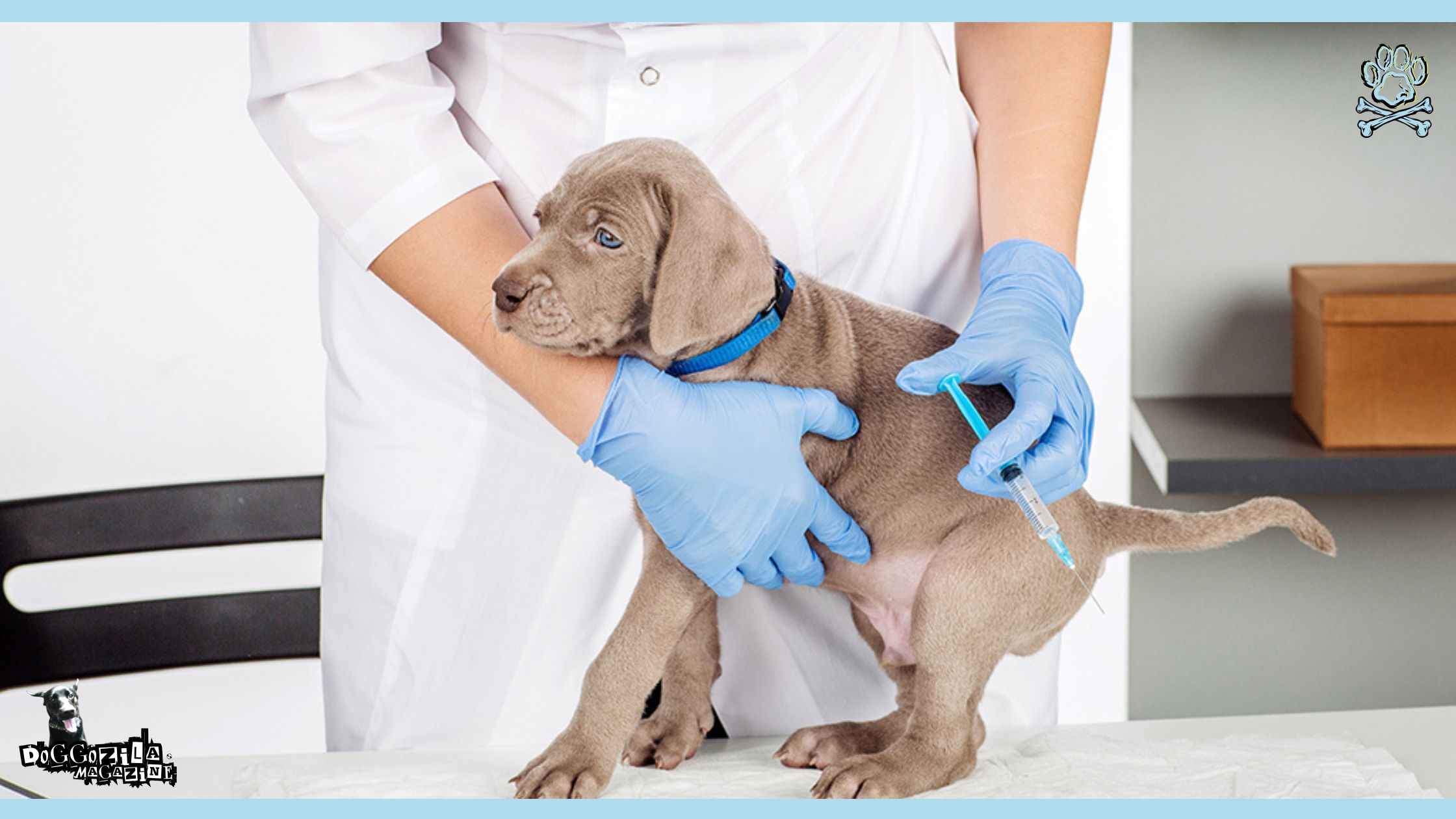
DISPELLING SPAYING/NEUTERING DOG HEALTH MYTHS
Spaying or neutering your dog is an essential part of responsible pet ownership, but many dog health myths surround the procedure. Some pet parents believe that it’s best to wait until their dog has had one litter or that the surgery will cause weight gain or personality changes. In reality, spaying or neutering your dog at an appropriate age can help prevent unwanted litters, reduce the risk of certain cancers, and promote better overall health and behavior.
Consult with your veterinarian to determine the best time for your dog to undergo the procedure based on their individual needs and health status.
🔑 Key Points: Spaying or neutering your dog is a crucial aspect of responsible pet ownership that offers numerous health and behavioral benefits, and should be discussed with your veterinarian to determine the optimal timing for your individual pet.
The Dog Health Myths for Flea & Tick Natural Remedies
While some pet parents may be drawn to natural remedies for flea and tick prevention, it’s essential to be cautious about their effectiveness and safety. Many natural products, such as essential oils, can be toxic to dogs if used improperly or in high concentrations.
Additionally, these remedies may not provide the same level of protection as veterinarian-recommended products, leaving your pet vulnerable to infestations and the diseases they can transmit. Fleas and ticks can cause significant discomfort for your dog and pose serious health risks, including anemia, Lyme disease, and Rocky Mountain spotted fever.
To ensure your pet’s safety and well-being, consult with your veterinarian to determine the most effective and appropriate flea and tick prevention plan for your furry friend. Remember, when it comes to your pet child’s health, it’s always best to rely on proven methods backed by scientific research and veterinary expertise.
🔑 Key Points: Natural remedies for flea and tick prevention may not be as safe or effective as veterinarian-recommended products, so it’s crucial to consult with your vet to ensure your dog receives the best possible protection against these harmful pests.
A Quick Summary on Dog Health Myths
Doggozila Magazine always aims to empower pet parents with accurate information to safeguard their furry companions’ well-being. From unraveling dog health myths about vaccination to clarifying misconceptions about nutrition and grooming practices, our article serves as a comprehensive guide to elevate your dog’s health.
By addressing common misinformation and highlighting the significance of tailored healthcare practices, readers are equipped to make informed decisions for their beloved pets.
Embracing evidence-based knowledge and expert advice, this article emphasizes the vital role of proper nutrition, grooming, and healthcare in optimizing your dog’s quality of life. Take the first step towards a healthier and happier bond with your four-legged best friend by implementing these essential insights.
Thank you for investing your time in learning the truth behind dog health myths.
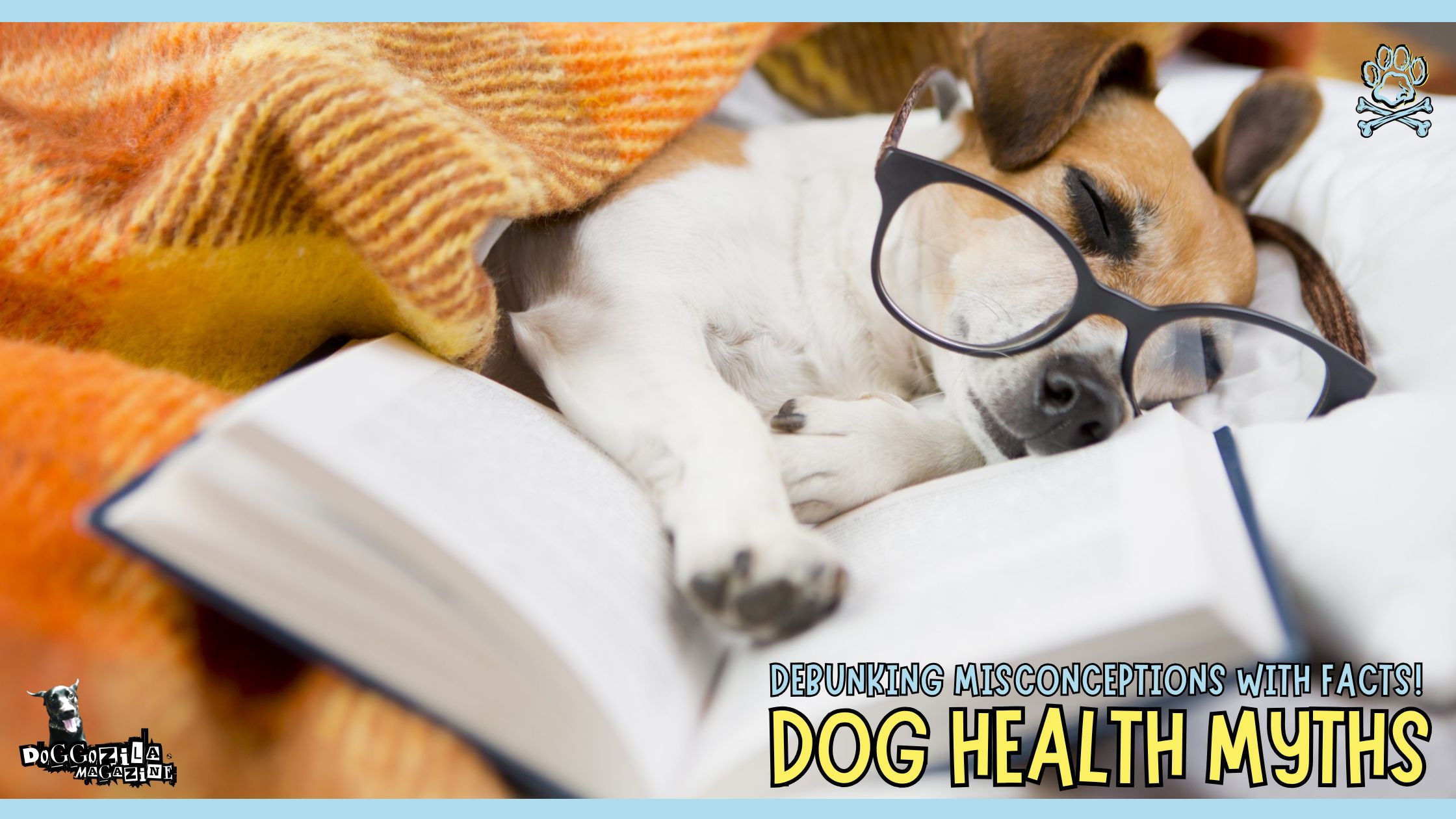
Together, let’s ensure our canine companions thrive with the right care and attention they deserve.









